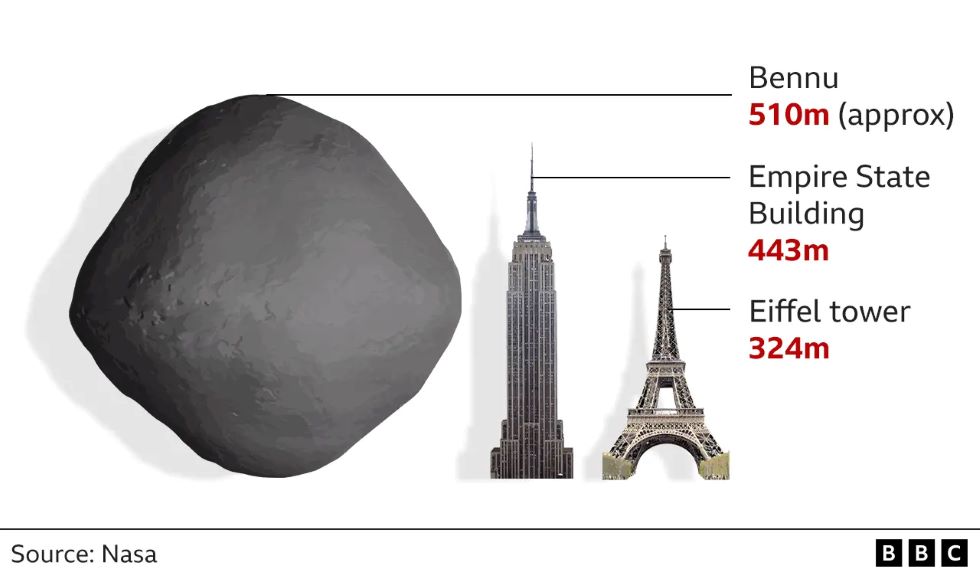Asteroid Bennu might have been part of an ocean world
A sample from the asteroid Bennu, brought back by the OSIRIS-REx mission, contains hints that it was once part of a planetesimal with conditions favourable for life to emerge.
The OSIRIS-REx (Origins, Spectral Interpretation, Resource Identification, Security, Regolith Explorer) spacecraft, which is on a mission to study the asteroid Bennu, brought fascinating news to the National Aeronautics and Space Administration (NASA) when it dropped a box with samples from the rock in September 2023.
More to read:
[videos] Asteroid Bennu has a slim chance to hit Earth in September 2182
Preliminary analyses suggested that Bennu contained carbon and water, the building blocks of life on Earth, which NASA triumphantly announced a month later.
Now the mission’s chief investigator Dante Lauretta proposes a hypothesis that the 4- or 5-million-year-old Bennu might have been once part of a thriving ocean world, in a very distant past.
She speculates that Bennu could be a leftover chunk from a minuscule-to-small planet with abundant water, an environment with the right conditions for the emergence of life.
The scientists have discovered that Bennu's thin and bright crust, contrasting with its otherwise dark rock, is composed of a rare calcium and magnesium-rich phosphate. Remarkably, this specific material is akin to substances observed emanating from the vents on the surface of Enceladus, Saturn's moon, according to the New Scientist.

Enceladus is widely believed to harbor a subsurface ocean beneath a thick ice layer, making it an intriguing parallel to Lauretta's proposed scenario for Bennu. While Bennu might have been part of a similar space rock, albeit only half the size of Enceladus, the parallels in mineralogy are prompting cautious agreement from other experts.
It’s unclear whether Bennu’s mother planet – if it ever existed – was part of our 4.5-billion-year Solar System or an outsider captured by the Sun.
Lauretta's cutting-edge theory about the ancient oceanic world is awaiting to be published in astrophysics journals.
A research paper published in 2019 claims that alien oceans could hold much more life that Earth’s waters ever did. There are plenty of rocky exoplanets in our galaxy and some of them are rich in carbon and water.
***
NewsCafe is a small, independent outlet that cares about big issues. Our sources of income amount to ads and donations from readers. You can buy us a coffee via PayPal: office[at]rudeana.com or paypal.me/newscafeeu. We promise to reward this gesture with more captivating and important topics.







